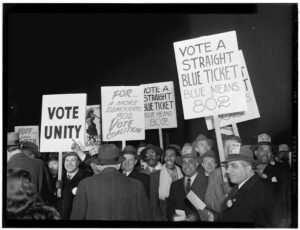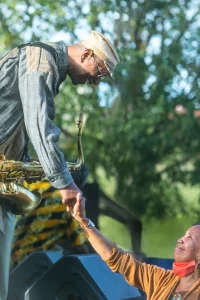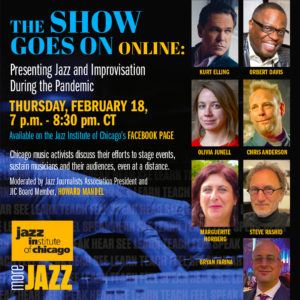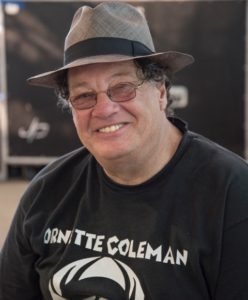Terri Lyne Carrington (drummer, Inst. of Jazz & Gender Justice), Orbert Davis (trumpeter, “Immigrant Stories“) and Marc Ribot (guitarist, Music Workers Alliance) talked with me on The Buzz, podcast of the Jazz Journalists Association about their engagement with social issues. Long transcript posted for those who read faster than they listen. But what happened in […]
Jazz Autumn: Returns, galas and even awards
If all “jazz” shares a single trait, it’s that nothing will stifle it. Adjusting to covid-19 strictures, Chicago (just for instance) in the past two months has been site of: A stellar Hyde Park Jazz Festival; Herbie Hancock’s homecoming concert at Symphony Center; audiences happily (for the most part – no reported incidents otherwise) observing […]
Jazz beats the virus online
Chicago presenters of jazz and new music, and journalists from Madrid to the Bay Area, vocalist Kurt Elling, trumpeter Orbert Davis and pianist Lafayette Gilchrist discussed how they’ve transcended coronavirus-restrictions on live performances with innovative methods to sustain their communities of musicians and listeners, as well as their own enterprises were in two Zoom panels […]
My Q&A for Blues@Greece & Spirit of Jazz Award
Jazz, blues, American literature and where I’d go for a day in a time machine are topics I address in an email interview with Michalis Limnios who blogs at Blue@Greece. I post this item out of sheer vanity, reinforced by my being presented with a Spirit of Jazz Award tomorrow (9/16) by the Englewood Jazz […]
A Great Migration suite from trumpeter Orbert Davis: Audio interview
Orbert Davis — trumpeter, composer and leader of the Chicago Jazz Philharmonic, has been commissioned by the Jazz Institute of Chicago to write and perform a suite about the Great Migration for the 38th annual free Chicago Jazz Festival. “Soul Migration,” for octet, will be heard Sept 1 at 8 pm in Millennium Park’s Pritzker Pavillion. […]





